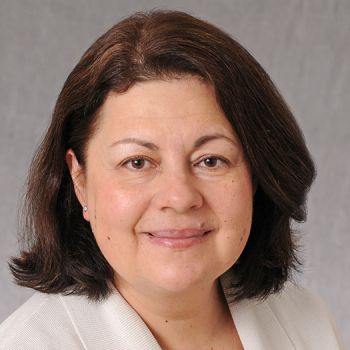Research in my laboratory is focused on understanding how stress-activated signal transduction pathways regulate skin homeostasis and repair, and how perturbations in this regulation contribute to skin disease, including skin cancer. We use molecular and gene targeting approaches, human and mouse skin cell culture models, including a three-dimensional organotypic human epidermal equivalent model system, as well as an array of cell biological and biochemical approaches to study skin carcinogenesis, wound healing, and epidermal barrier formation and function.
We have a long-standing interest in elucidating the in vivo cell type-specific roles of p38 mitogen-activated protein kinase (MAPK) isoforms in skin carcinogenesis. Using mouse models of skin and lung carcinogenesis, my laboratory was the first to demonstrate the essential in vivo role for p38d/MAPK13 in regulation of epithelial (skin and lung) carcinogenesis, suggesting potential therapeutic prospects by targeting p38d for treatment of cancer. Our present studies focus on elucidating the functions of p38a/MAPK14 isoform in control of squamous carcinogenesis. We anticipate that these studies will lead to a better understanding of the mechanisms of skin neoplasia, and will potentially lead to new and improved therapeutic strategy for cutaneous squamous cell carcinoma, the most common cancer that is rapidly rising in incidence in the United States and worldwide, and exhibits poor prognosis in advanced stages.
In collaboration with Dr. Igor Efimov's laboratory, we also study the roles of p38 MAPK isoforms in cardiac toxicity of anti-cancer agents such as an anthracycline antibiotic doxorubicin.
Education
PhD, Case Western Reserve University, 2000
M.Sc., Moscow Institue of Physics and Technology, Russia, 1987
B.Sc., Moscow Institue of Physics and Technology, Russia, 1985
Clinical / Research Interests
Skin Cancer
Head and Neck Cancer
Mouse Models of Cancer Development
Cancer Immunobiology
Biography

